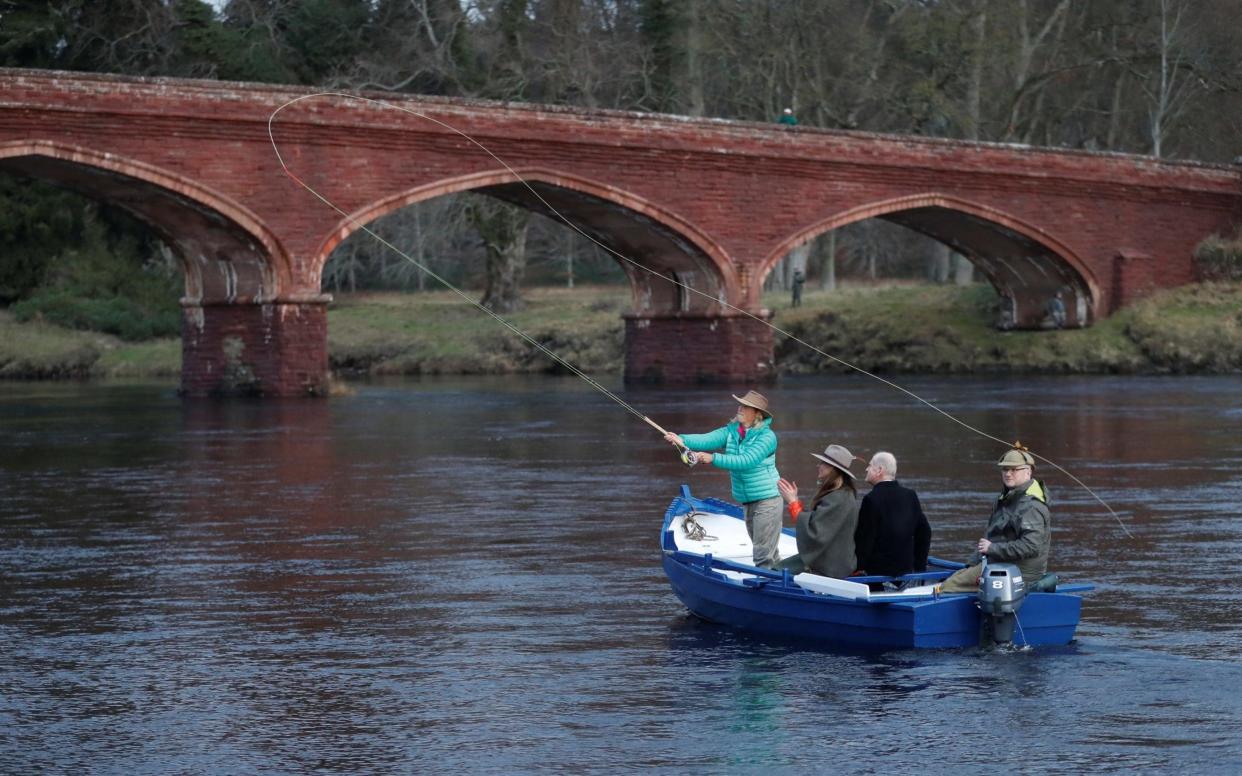Wild salmon stocks hit 'lowest level' on record after disastrous season on Scotland's prime rivers

Salmon catches on Scotland’s rivers fell to their lowest level since records began last year, sparking calls for the preservation of the species to become a national priority.
Fisheries Management Scotland said official figures to be released by the Scottish Government on Wednesday would confirm that Atlantic salmon are at a “crisis point”.
Rod and line catches are believed to have been lower than since records began in 1952, after a disastrous year on famous rivers, including the Tay, the Tweed and the Spey.
Alan Wells, chief executive of FMS, which represents the country’s district salmon fishery boards, said: "Figures for 2018, taken together with those of recent years, confirm this iconic species is now approaching crisis point.
"Some of the factors impacting on wild salmon stocks may be beyond human control.
"But Scotland's Government and regulatory authorities now have a historic opportunity to do everything in their power to safeguard the species in those areas where they can make a difference."

He added: "Salmon conservation must become a national priority in what is the International Year of the Salmon.
"We are calling on all regulatory authorities urgently to place a renewed emphasis on the crucial importance of salmon conservation.
"There are many examples where positive interventions have already helped, but more must be done.”
Mr Wells said ministers and agencies needed to co-ordinate efforts to protect salmon in a way that was currently not happening.
In 2017, the total rod catch was put at 49,444 fish, a drop of 20 per cent on the five-year average and the fourth lowest figure on record. Nine out of 10 fish were returned in a bid to help stocks.
According to the Atlantic Salmon Trust, wild salmon and sea trout numbers are being “decimated” on their annual migration from Scottish rivers to the waters of Greenland and the Norwegian Sea.
For every 100 salmon that leave rivers for the sea, less than five return, marking a decline of nearly 70 per cent in salmon numbers in just 25 years.
The trust has launched a project to track young salmon (smolts) going to sea for the first time in bid to learn what happens to them on the journey.
Causes for the drop in numbers are thought to include global warming affecting the feeding grounds in the North Atlantic and over fishing at sea. In Scotland’s west coast rivers, the drop in numbers has also been blamed large concentrations of parasitic sea lice in coastal salmon farms.
Andrew Graham-Stewart, of Salmon and Trout Conservation Scotland, said ministers needed to act now to protect salmon and sea trout from the impacts of salmon farming.

 Yahoo News
Yahoo News 
